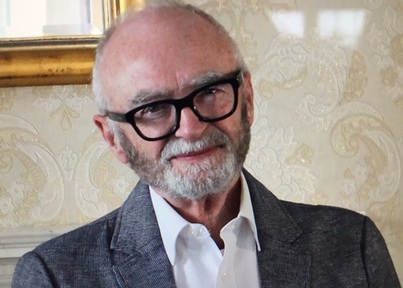Technology in the early years: A help or a hindrance?
The use of technology in the early years is a contentious issue among childcare professionals and parents. Child-friendly apps, toys and gadgets are becoming increasingly affordable and accessible, while there is growing concern about the implications of introducing children to technology during their early years, and the risks associated with frequent use.
Many nurseries offer technology as an attractive selling point when showing potential families around.
Childcare providers such as Bright Horizons offer a technology inclusive early years learning experience. They use a range of innovative technologies in their nurseries alongside traditional early years learning techniques, researching and trialling everything before introducing it into a setting.
Children are 'digital natives'
Director of early years at Bright Horizons, Nicola Amies, said: “We recognise that children are growing up in a world where they are now described as ‘digital natives’. With that in mind, we see technology as an enabler to help them in a world that is moving at an increasingly fast pace.

“As always, effective pedagogy and sound learning objectives guide our choice of materials and tools used in learning activities, and we continue to find a balance that aligns the elements of a safe and healthy childhood with the unique learning offered by technology.
“Children are naturally curious and will explore technology on a variety of levels – not only how it works but the part technology plays in the world in which they live. Each day, technology provides children with an additional resource to support learning, from literacy and maths to art, design and imaginative play. Technology also supports in developing children’s gross motor skills, keyboard skills and hand-eye coordination.”
Ms Amies added: “Children are able to use each device collaboratively and they frequently and patiently share activities, take turns, support each other’s learning and rejoice in each other’s success.”
Other providers offer a more 'stripped back' approach to learning. Outdoor nurseries, Forest Schools, Steiner schools and Montessori nurseries offer technology free learning, which can be more appealing to some parents than childcare facilities offering some of the technologically advanced learning methods.
Steiner schools introduce technology to children as they approach their early teenage years, and believe that though late to learning technology, children tend to be more mature and proficient than those introduced to technology during their early years education.
'We need a 'less is more' approach to learning'
Dr Richard House of The Critical Institute is a chartered psychologist and childhood campaigner who believes that children are growing up too soon, and are inappropriately exposed to technology in early years.

Speaking about when it is appropriate for children to be exposed to technology, he said: “We need an explicitly precautionary approach in both early learning and recreationally, which works with the principle that ‘less is very often more’.
“In general, the purported benefits of exposing young children to these technologies can easily be acquired through other means and with less risk of unintended negative side-effects. Also, many of the associated skills are learned more quickly, and more effectively, at a later age – and also with less likelihood of developing bad habits or misunderstandings.”
Speaking about the types of early years education available to families and children and the number of emerging Forest Schools and outdoor nurseries shaping a trend for a new ‘stripped-back’ approach to childcare, Dr House said: “There’s a growing number of authorities and early-years approaches which are collectively challenging the ubiquity of these technologies in nursery settings.
“On the other hand, there exists a powerful ideology that technology and associated innovations are necessarily beneficent, and an equally powerful private, profits-driven ICT industry that has a vested interest in ‘colonising’ early childhood education. When private profit is the main motivator, the great danger, of course, is that pedagogical and developmental appropriateness is the very first casualty – and responsible educators must never allow that to happen.”
Both manufacturers of toys and technology produce and market their products at children as much as their adult intended target market. Smartphone and tablet apps can be easily used by children and colourful, cartoon advertising is often designed to draw their attention, while a range of children’s toys are already available to purchase with the function to synchronise with apps and other wireless devices offering endless hours of entertainment.
Dr House said: “Such ‘toys’ encourage an anti ‘slow-learning’ ideology of instantaneity, militating against real-world learning experiences which are vital for young children as part of their developmental understanding of the physicality and causal sequences that make up real-world experience."
It is assumed children know how to use technology
Last year, Professor Annette Karmiloff-Smith at the University of London conducted a study revealing that children benefit more from sensory stimulation when using iPads, than books.
While the University of Sheffield produced a study revealing that one-third of under-fives, own an iPad, on average using it for one hour and twenty minutes per day.

Often concerns are raised about children not getting enough exercise and adults spending too much time using technology in their daily lives. Some experts argue that children are missing out on free-flow play and learning, others praise the benefits of technology and the access to learning opportunities it can provide.
Earlier this year, children’s charity, Action for Children reported that nearly a quarter of parents were struggling to control the amount of time children were allowed to spend using screens and technology, while nearly 20 per cent found it difficult to get their children to go to bed.
Managing director of operations at Action for Children, Carol Iddon commented: "Technology is an often necessary part of the lives of children and parents alike, but it's important to maintain a balance with other activities and quality family time."
Dr House believes in the importance of 'free, uninterrupted, imaginative and physical play which engages the whole body'. He said: “I think it’s unarguable that at least some children’s life-long predilections will be influenced by these early experiences.
“It is a child’s ‘human right’ to expect the adults responsible for them – parents, teachers, policy-makers – to provide a developmentally appropriate and empowering human environment for them in which to learn and grow. The nature of such an environment is of course open to debate and contestation; but to assert that children have a ‘human right’ to access technologies that research and anecdotal evidence suggests might well harm them is patently absurd, and socially irresponsible.
“There is significant evidence that unbalanced early development and learning can lead to life-long clinical psychopathologies, and at worst premature mortality. I firmly believe that what is most important in early development is balanced holistic learning; and in order to provide the latter, young children’s environments need to be carefully designed and thought about.”
In contrast to the growing number of technology free childcare settings, many nurseries in the UK continue to offer a fully inclusive early years learning experience, incorporating a range of resources, innovations and activities that engage and challenge children, physically, emotionally and intellectually.
Furthermore, in a technology oriented world, it is commonplace to expect to see technology in educational establishments and childcare provisions.
Dr House argues that it is ‘unavoidable that digital technology experiences will disrupt natural learning in your children’. With the increased availability of products targeted at young children and child development, it is assumed that children know how to use technology, even before stepping foot into a learning environment.
View a debate daynurseries.co.uk carried out on the benefits of technology in nurseries here.
Latest Features News
 31-Oct-19
Reward stickers at nursery accused of having a 'dark side'
31-Oct-19
Reward stickers at nursery accused of having a 'dark side'
 18-Sep-19
Neuroscientist tells nurseries to ditch stereotypes as they create gendered brains
18-Sep-19
Neuroscientist tells nurseries to ditch stereotypes as they create gendered brains
 03-Sep-19
School readiness: Nursery chief says four-year-olds are too young for 'big school'
03-Sep-19
School readiness: Nursery chief says four-year-olds are too young for 'big school'
 24-Jul-19
Nurseries 'fed up' of early years being used as political football, says ex-children's commissioner
24-Jul-19
Nurseries 'fed up' of early years being used as political football, says ex-children's commissioner
 21-Jun-19
Forest school experiment: How my tidy preschooler went feral for the day
21-Jun-19
Forest school experiment: How my tidy preschooler went feral for the day